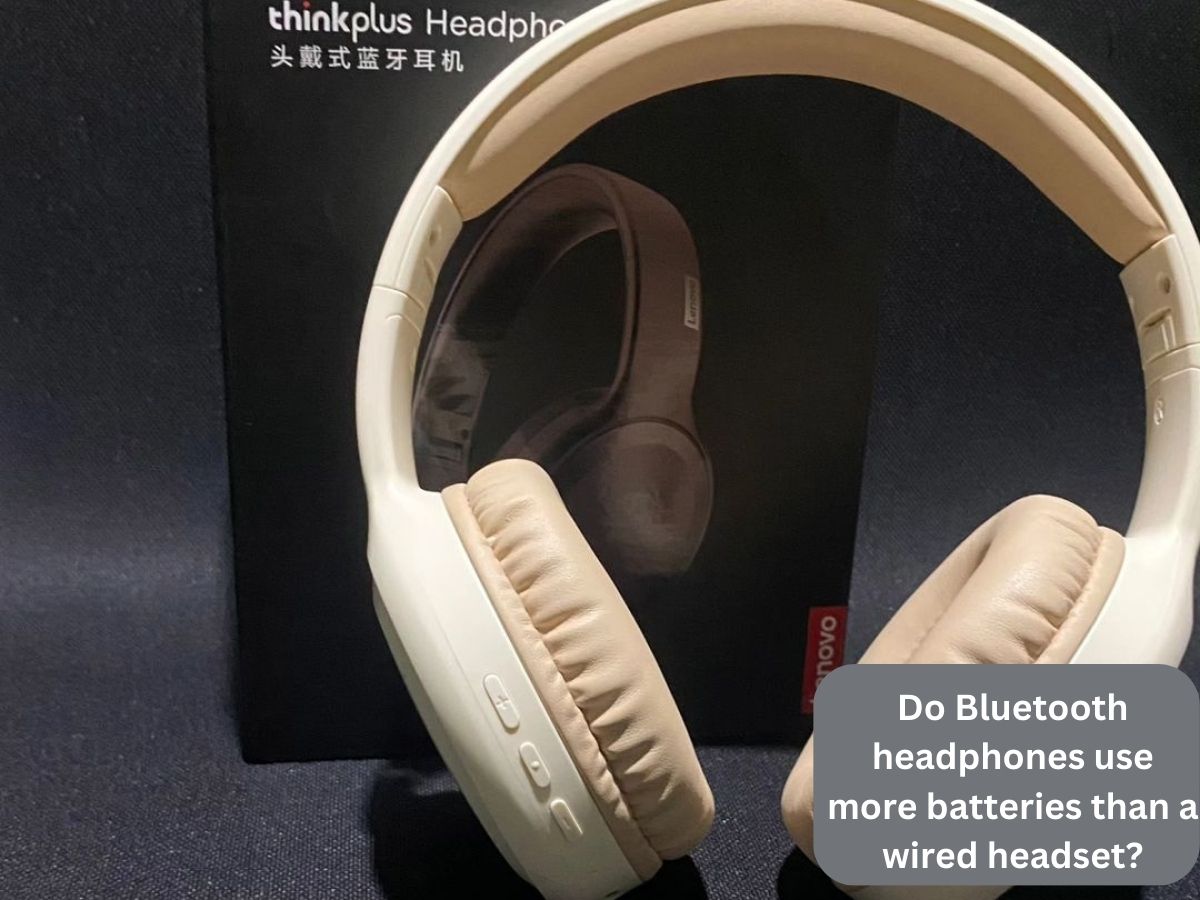Are you one of those who can’t resist grooving to their favorite beats while on the go? If so, you’re probably well aware of the rising trend of wireless headphones, especially Bluetooth headphones. With their cord-free convenience and hassle-free mobility, it’s no wonder they’ve become the go-to choice for many.
But, here’s the million-dollar question that often pops up in headphone discussions: Do Bluetooth headphones use more batteries than a wired headset? We’ve all been there, worrying about battery life while jamming out to our favorite tunes or taking important calls.
In this article, we’re going to explore this intriguing topic and provide you with a clear answer backed by evidence. We’ll delve into the world of Bluetooth technology, battery life comparisons, and energy efficiency, and even offer some handy tips to optimize battery performance.
So, if you’ve ever wondered about the battery prowess of your beloved Bluetooth headphones compared to their wired counterparts, read on, and let’s settle this debate once and for all.
Do Bluetooth headphones drain the battery of my phone?
Yes, Bluetooth headphones do consume the battery of your phone or connected device, but the impact on battery life is typically minimal. When you use Bluetooth headphones, your phone or device acts as the source of audio and also establishes a wireless connection with the headphones. This wireless communication consumes some energy, leading to a slight drain on your phone’s battery.
However, modern smartphones and other devices are designed to handle Bluetooth connections efficiently. The power usage for maintaining a Bluetooth connection is optimized to minimize its impact on battery life. As a result, using Bluetooth headphones should not significantly affect your phone’s battery life during normal use.
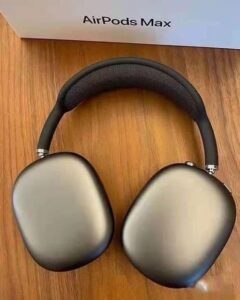
That said, the battery drain may be more noticeable if you continuously use Bluetooth headphones for extended periods or if the Bluetooth connection is unstable, leading to frequent re-establishment of the connection.
To maximize your phone’s battery life, it’s a good practice to disconnect your Bluetooth headphones when not in use and ensure you are within a reasonable range from your device to maintain a stable connection.
Overall, while Bluetooth headphones do consume some battery from your phone, the impact is usually minimal and should not be a major concern for regular usage.
Battery Life of Bluetooth Headphones vs. Wired Headsets
When it comes to battery life, Bluetooth headphones and wired headsets each have their own set of considerations. Let’s break it down and see what impacts their performance.
Alright, let’s delve into the battery life comparison between Bluetooth headphones and wired headsets. Both types of headphones have unique characteristics that can impact their battery usage.
Factors Affecting Battery Life
Ah, the never-ending quest for longer battery life; When it comes to comparing battery life between Bluetooth headphones and wired headsets, several factors come into play. Let’s unravel the mystery and see how each type fares in various scenarios.
Battery Capacity and Design
Bluetooth headphones and wired headsets differ in their battery capacity and design. Bluetooth headphones need to accommodate a built-in battery to power the wireless connection, while wired headsets draw power directly from the device they are connected to. The size and capacity of the batteries can vary, impacting how long they can keep the tunes playing.
Wireless Transmission vs. Wired Connection
The wireless nature of Bluetooth headphones inherently demands more energy. When you stream audio wirelessly, Bluetooth technology constantly transmits data between your device and headphones. In contrast, wired headsets have a direct, uninterrupted connection, which typically requires less power.
Audio Codec and Quality
Different audio codecs, such as AAC, aptX, or SBC, can affect battery consumption in Bluetooth headphones. High-quality codecs may consume more power to deliver superior audio, while standard codecs might be more energy-efficient. On the other hand, wired headsets’ energy usage remains consistent, regardless of audio quality.
Bluetooth Version
Newer Bluetooth versions, like Bluetooth 5.0 and beyond, are more energy-efficient compared to older versions. Upgrading to the latest Bluetooth version can improve battery performance in Bluetooth headphones.
Usage Scenarios
Battery consumption also varies based on how you use your headphones. Higher volume levels, constant phone calls, or continuous use during workouts may drain the battery faster in both Bluetooth and wired headsets.
In real-life scenarios, both types have their strengths. Bluetooth headphones have made significant strides in energy efficiency, offering battery life comparable to wired headsets. Advances in battery and Bluetooth technology have minimized the gap between the two, providing users with excellent options regardless of their preferences.
So, whether you choose the convenience of wireless freedom or the reliability of a wired connection, rest assured that you can enjoy your music for extended periods, thanks to advancements in both technologies.
Analysis of Battery Consumption
In real-life scenarios, both Bluetooth headphones and wired headsets can offer satisfactory battery life. High-quality Bluetooth headphones, equipped with efficient batteries and codecs, can match or even outperform wired headsets.
However, in situations where you need uninterrupted usage for an extended period, wired headsets might have a slight edge due to their lack of reliance on batteries.
In most everyday use cases, the difference in battery life between Bluetooth headphones and wired headsets is minimal. The convenience of wireless listening often outweighs any minor variations in battery consumption.
So, while battery life is an essential consideration, it shouldn’t be the sole determining factor when choosing between Bluetooth headphones and wired headsets. Other aspects such as freedom of movement, comfort, and audio quality should also be taken into account. In the end, it boils down to your personal preferences and how you plan to use your headphones.
Battery Consumption in Bluetooth Headphones
Battery life is a crucial concern for anyone using Bluetooth headphones, and understanding the factors that influence it is essential to make an informed decision. Let’s dive into the realm of battery consumption in Bluetooth headphones and explore the key factors that play a role:
- Bluetooth Version: The Bluetooth version of your headphones can significantly impact battery life. Newer versions, like Bluetooth 5.0 and beyond, employ Low Energy (LE) protocols, reducing power consumption during data transmission. Upgrading to a newer version can result in improved energy efficiency, prolonging your battery life.
- Audio Codec: Bluetooth headphones use different audio codecs to compress and transmit audio signals. High-quality codecs, such as AAC or aptX, may consume more power to deliver superior audio fidelity. On the other hand, standard codecs like SBC are more energy-efficient but may compromise slightly on sound quality.
- Battery Capacity: The battery capacity of Bluetooth headphones varies across different models and brands. Larger batteries can store more energy and potentially provide longer playback times. However, larger batteries can also make the headphones heavier and bulkier, impacting overall comfort.
- Usage Patterns: Your usage patterns play a vital role in battery consumption. Factors such as listening volume, call duration, and usage during workouts can influence how quickly the battery depletes. Listening at higher volumes or using features like active noise cancellation can lead to faster battery drain.
- Features and Connectivity: Bluetooth headphones often come with various features like noise cancellation, touch controls, and companion apps. These additional features may require extra power, affecting battery life. Moreover, maintaining a stable Bluetooth connection with your device can consume energy, especially if the connection quality is poor.
Now, let’s talk about the battery technologies used in wireless headphones:
- Lithium-ion (Li-ion) Batteries: Most modern Bluetooth headphones utilize lithium-ion batteries, known for their high energy density and lightweight design. Li-ion batteries offer a good balance between size, weight, and performance, making them ideal for portable devices like headphones.
- Lithium Polymer (Li-Po) Batteries: Lithium polymer batteries are a variation of Li-ion batteries with a slightly different electrolyte composition. They are often used in ultra-compact Bluetooth earbuds due to their flexibility and ability to fit into small and irregular spaces.
- Battery Management Systems: Many Bluetooth headphones incorporate sophisticated battery management systems that optimize power usage. These systems monitor battery health, regulate charging and discharging processes, and ensure safe and efficient energy utilization.
Battery life in Bluetooth headphones is influenced by various factors, from Bluetooth version and audio codecs to battery capacity and usage patterns.
Advances in battery technology and management systems continue to improve the overall battery performance of wireless headphones, ensuring that users can enjoy their favorite music and podcasts for extended periods.
As you explore different Bluetooth headphone options, keep these factors in mind to find the perfect balance between battery life and audio experience that suits your needs.
Battery Consumption in Wired Headsets
When it comes to battery consumption in wired headsets, the good news is that they operate quite differently from their Bluetooth counterparts. Wired headsets do not rely on built-in batteries to function, as they draw power directly from the device they are connected to. This unique feature grants them a distinct advantage when it comes to energy usage.
Since wired headsets utilize the device’s power, they don’t have an additional drain on battery life. As long as your device has sufficient charge, you can enjoy uninterrupted audio without worrying about running out of power in your headphones.
Now, let’s compare the battery consumption of wired headsets with their Bluetooth counterparts:
- Power Source: As mentioned earlier, wired headsets draw power directly from the connected device, which means they have an inexhaustible power source, as long as the device has power. On the other hand, Bluetooth headphones require their battery, which can deplete over time, leading to the need for recharging.
- Battery Life: Wired headsets technically have infinite battery life as long as they remain connected to the device. Bluetooth headphones, however, have a limited battery life that varies based on factors like the Bluetooth version, audio codec, and usage patterns.
- Convenience vs. Reliability: Bluetooth headphones offer the convenience of wireless freedom, allowing you to move around without being tethered to your device. On the contrary, wired headsets may limit your range of movement due to the physical cable. However, they provide the reliability of a constant power supply and no concerns about battery life.
- Audio Quality: Both wired and Bluetooth headphones can offer excellent audio quality. While some audiophiles argue that wired connections provide superior sound due to their direct and uninterrupted transmission, modern Bluetooth technology with high-quality audio codecs has narrowed the gap significantly.
Battery consumption in wired headsets is virtually nonexistent, thanks to their direct power supply from the connected device. This makes them a reliable choice for prolonged usage without the need for recharging.
On the other hand, Bluetooth headphones offer the convenience of wireless listening but require regular charging to maintain their functionality.
Ultimately, the choice between the two depends on your preferences and priorities – whether you prioritize wireless convenience or the reliability of a direct power connection.
Myths and Misconceptions
This is a common misconception that stems from the early days of Bluetooth technology when battery efficiency was indeed a concern. However, technological advancements have significantly improved the energy efficiency of Bluetooth headphones. In many cases today, Bluetooth headphones offer battery life comparable to wired headsets, making this myth outdated.
Myth #2: Bluetooth Headphones Drain Smartphone Battery Faster
While it’s true that Bluetooth headphones use their batteries for wireless communication, the impact on your smartphone’s battery life is often negligible. Modern smartphones are designed to handle Bluetooth connections efficiently, and the power usage for this purpose is typically minimal. You can listen to music or take calls on your Bluetooth headphones without worrying about a drastic drop in your smartphone’s battery levels.
Myth #3: All Bluetooth Headphones Have Short Battery Life
This myth couldn’t be farther from the truth. The battery life of Bluetooth headphones varies significantly based on the model, brand, and features. High-quality Bluetooth headphones with advanced energy-efficient technologies can provide impressive battery life, sometimes even outperforming wired headsets.
Myth #4: Bluetooth Connectivity Always Drains Batteries Faster
The energy consumption of Bluetooth connectivity depends on the strength and stability of the connection. If you’re using Bluetooth headphones near your device and with a strong signal, the impact on battery life is minimal. However, if the connection is weak or unstable, it may consume more power as the headphones continuously search for a signal.
Clarifying the Impact of Battery Consumption on Daily Usage
In our daily lives, the impact of battery consumption in Bluetooth headphones is manageable. Most high-quality Bluetooth headphones can offer several hours of playback on a single charge, making them suitable for daily use. With a bit of planning, such as charging your headphones overnight or during breaks, you can ensure they are always ready when you need them.
It’s essential to remember that the convenience of wireless listening often outweighs the minor differences in battery usage. Bluetooth headphones free us from the hassle of untangling cords and offer the liberty to move around effortlessly.
The myths surrounding Bluetooth headphones’ battery usage are largely unfounded in today’s world of advanced technology. The choice between Bluetooth headphones and wired headsets ultimately depends on your lifestyle preferences and priorities. So, embrace the wireless revolution, and let your favorite tunes keep you company on your daily adventures.
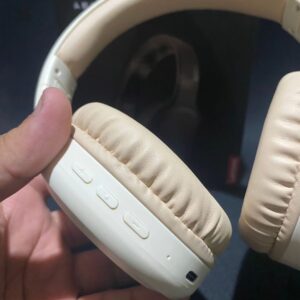
Advantages and Disadvantages of Bluetooth Headphones
Advantages of Bluetooth Headphones:
- Wireless Freedom: The most obvious advantage of Bluetooth headphones is the freedom from tangled cords. You can move around, exercise, or work without being tethered to your device. This convenience makes Bluetooth headphones an ideal choice for people on the go.
- Ease of Use: Pairing Bluetooth headphones with your device is a breeze. Once you’ve initially connected them, they will automatically connect to your device whenever it’s within range. No need to plug and unplug cables every time you want to use them.
- Multiple-Device Connectivity: Many Bluetooth headphones support multi-device connectivity, allowing you to seamlessly switch between your smartphone, laptop, and other devices without the hassle of repairing.
- Stylish Designs: Bluetooth headphones come in a variety of sleek and stylish designs, catering to different tastes and preferences. From over-ear to in-ear, there’s a style for everyone.
- Active Noise Cancellation (ANC): Advanced Bluetooth headphones often feature ANC technology, which blocks out external noise, creating a more immersive audio experience. ANC is a valuable feature for travelers and those seeking a focused listening experience.
Disadvantages of Bluetooth Headphones:
- Battery Consumption: As we’ve discussed earlier, Bluetooth headphones rely on built-in batteries for wireless connectivity. While battery life has improved significantly, it remains a drawback compared to wired headsets that draw power directly from the device.
- Audio Quality: Although Bluetooth technology has made great strides in audio transmission, some audiophiles argue that wired connections still provide superior sound quality due to the direct and uninterrupted signal path.
- Bluetooth Interference: In crowded areas or places with many electronic devices, Bluetooth signals may encounter interference, leading to occasional drops in audio quality or connection interruptions.
- Latency Issues: Bluetooth headphones can sometimes experience latency, causing a slight delay between the audio and video when watching videos or playing games. While modern Bluetooth versions have reduced this problem, it may still be noticeable in specific situations.
- Initial Setup Complexity: While pairing Bluetooth headphones is generally straightforward, some users may find the initial setup process confusing, especially if they are not tech-savvy.
Bluetooth headphones offer undeniable benefits, including the convenience of wireless listening and ease of use. However, potential drawbacks like battery consumption and audio quality should be considered when making your decision.
Ultimately, the choice between Bluetooth headphones and wired headsets depends on your lifestyle, preferences, and how you prioritize these factors in your audio experience.
Advantages and Disadvantages of Wired Headsets
Advantages of Wired Headsets:
- Reliable Connection: Wired headsets offer a direct and reliable connection to your audio source. There’s no need to worry about pairing or connectivity issues, ensuring a consistent and uninterrupted audio experience.
- No Battery Dependence: Unlike Bluetooth headphones, wired headsets do not rely on batteries for operation. As long as your device has power, you can use the headset without any concerns about battery life.
- Superior Audio Quality: Many audiophiles and music enthusiasts prefer wired headsets for their superior sound quality. The direct and analog connection ensures minimal signal loss and delivers high-fidelity audio.
- Minimal Latency: Wired connections have minimal latency, making them ideal for activities like gaming or watching videos where synchronization between audio and visual elements is crucial.
- Versatility: Wired headsets are compatible with a wide range of devices, from smartphones and laptops to gaming consoles and audio equipment. There’s no need to worry about Bluetooth compatibility or device limitations.
Disadvantages of Wired Headsets:
- Tangled Cables: The most apparent drawback of wired headsets is the presence of cables. They can become tangled and restrict your range of movement, making them less suitable for activities that require more freedom.
- Wear and Tear: The constant bending and twisting of cables can lead to wear and tear over time, potentially affecting the headset’s longevity. Proper cable management and care are necessary to mitigate this issue.
- Limited Range: Wired headsets are limited by the length of their cables. You need to remain near your audio source, which may not be ideal for those who prefer more mobility.
- Inconvenience: Plugging and unplugging the headset every time you want to use it can be less convenient compared to the seamless connectivity of Bluetooth headphones.
- Physical Connection Required: With wired headsets, you need to physically connect to your device, which can be impractical if your device lacks a headphone jack or if you need to share audio with others.
Wired headsets offer a reliable and high-quality audio experience without the need for batteries. They are versatile and compatible with various devices, making them a go-to choice for audiophiles and professionals who prioritize sound fidelity.
However, the trade-offs, such as cable management, limited range, and the inconvenience of physical connections, may be significant factors for those seeking more mobility and wireless convenience in their audio experience.
Ultimately, the choice between wired headsets and Bluetooth headphones depends on individual preferences and the specific use case.
Energy Efficiency of Bluetooth Technology:
Bluetooth technology operates in the 2.4 GHz frequency band and uses a short-range wireless communication protocol to transmit data between devices. When it comes to energy consumption, Bluetooth technology has come a long way since its inception.
- Power Usage during Idle Mode: In idle mode, Bluetooth devices consume very little power. The technology is designed to go into a low-power sleep state when not actively transmitting data. This idle state contributes to the overall energy efficiency of Bluetooth devices, allowing them to conserve power when not in use.
- Data Transmission: During data transmission, Bluetooth devices need to use more power to send and receive data packets. However, modern Bluetooth technology is optimized to minimize the energy required for this process. Bluetooth uses adaptive frequency hopping, which allows the device to switch between different frequency channels rapidly. This reduces the chances of interference and maximizes power efficiency during data transfer.
Improvements in Bluetooth Technology over Time:
Over the years, several improvements have been made to Bluetooth technology to enhance its energy efficiency:
- Bluetooth Low Energy (LE): One of the most significant advancements in Bluetooth technology is the introduction of Bluetooth Low Energy (LE) or Bluetooth Smart. Bluetooth LE was introduced with Bluetooth 4.0 and is specifically designed for low-power applications. Devices using Bluetooth LE can operate with minimal power consumption, making them ideal for wearable devices, health trackers, and other battery-powered gadgets.
- Bluetooth Smart Ready: Bluetooth Smart Ready is a feature introduced with Bluetooth 4.0 that allows devices to be dual-mode, supporting both traditional Bluetooth and Bluetooth LE. This compatibility ensures seamless communication between various Bluetooth devices, regardless of their power requirements.
- Bluetooth 5.0 and Beyond: The latest Bluetooth versions, such as Bluetooth 5.0 and subsequent releases, continue to refine energy efficiency. These versions further optimize data transmission and reduce power consumption, extending battery life in Bluetooth devices.
The Impact of Bluetooth Versions on Battery Usage:
The Bluetooth version has a significant impact on battery usage in Bluetooth devices:
- Older Bluetooth Versions: Early Bluetooth versions, such as Bluetooth 2.0 and 3.0, were relatively power-hungry compared to modern versions. Continuous data transmission and less efficient protocols led to faster battery drain in older Bluetooth devices.
- Bluetooth 4.0 and LE: Bluetooth 4.0 introduced the Low Energy (LE) protocol, significantly improving power efficiency. Devices using Bluetooth 4.0 and LE can operate for extended periods on smaller batteries, making them ideal for wearable devices and other IoT applications.
- Bluetooth 5.0 and Beyond: Bluetooth 5.0 brought further enhancements, including higher data transfer rates and extended range, while still maintaining energy efficiency. These improvements allow for a better user experience without compromising battery life.
In conclusion, Bluetooth technology has undergone substantial improvements in energy efficiency over the years. The introduction of Bluetooth Low Energy (LE) and subsequent advancements in Bluetooth versions have significantly reduced power consumption, making Bluetooth devices more energy-efficient than ever before.
As a result, modern Bluetooth headphones and other wireless gadgets can offer extended battery life, providing users with a seamless and long-lasting wireless experience.
Optimizing Battery Life in Bluetooth Headphones
Tips to Extend Battery Life in Bluetooth Headphones:
- Lower Volume Levels: Listening at lower volume levels can significantly reduce power consumption and extend battery life. Avoid cranking up the volume to the maximum unless necessary, and find a comfortable level that allows you to enjoy your audio without draining the battery too quickly.
- Turn off ANC and Extra Features: If your Bluetooth headphones come with active noise cancellation (ANC) or other extra features like EQ adjustments or LED lights, disabling them when not needed can save power. ANC, in particular, can consume more battery, so use it only in noisy environments where it’s essential.
- Disconnect When Not in Use: When you’re done using your Bluetooth headphones, make sure to disconnect them from your device. Even when idle, Bluetooth devices use a small amount of power to maintain a connection. Disconnecting when not in use can help conserve battery life.
- Use Energy-Efficient Codecs: Many modern Bluetooth headphones support energy-efficient audio codecs like AAC or aptX. These codecs provide high-quality audio with lower power consumption compared to standard codecs like SBC. If your device and headphones support these codecs, consider using them for improved battery performance.
Best Practices for Efficient Battery Usage:
- Charge Properly: Follow the manufacturer’s guidelines for charging your Bluetooth headphones. Overcharging or leaving them plugged in for extended periods can affect the battery’s health. Unplug the charger once the headphones are fully charged.
- Avoid Extreme Temperatures: Extreme temperatures, both hot and cold, can negatively impact battery life. Avoid exposing your Bluetooth headphones to direct sunlight, and don’t leave them in extremely cold environments.
- Keep Firmware Updated: Manufacturers often release firmware updates for their Bluetooth headphones to improve performance, including energy efficiency. Check for updates regularly and install them as recommended by the manufacturer.
Choosing the Right Bluetooth Version for Efficiency:
- Bluetooth Low Energy (LE): If battery life is a top priority, consider opting for Bluetooth headphones that support Bluetooth Low Energy (LE) or Bluetooth Smart. Devices with Bluetooth LE consume significantly less power, making them ideal for long-lasting performance.
- Bluetooth 5.0 and Beyond: Bluetooth 5.0 introduced several improvements in energy efficiency, providing better range and data transfer rates while still conserving power. Choosing headphones with Bluetooth 5.0 or newer versions can help strike a balance between performance and efficiency.
- Bluetooth Smart Ready: Devices that support Bluetooth Smart Ready are dual-mode and compatible with both traditional Bluetooth and Bluetooth Low Energy (LE). This flexibility ensures seamless connectivity while maintaining energy efficiency.
By implementing these tips and best practices and choosing Bluetooth headphones with energy-efficient features and Bluetooth versions, you can optimize battery life and enjoy extended listening sessions without the worry of frequent recharging. Remember that the battery performance may vary between different headphone models, so always refer to the manufacturer’s specifications for accurate information.
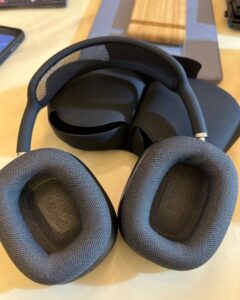
User Experience
Wireless headphones have revolutionized the way we experience audio, offering unparalleled convenience that enhances the user experience. Here are some ways wireless headphones provide a more seamless and enjoyable listening experience:
- Freedom of Movement: With no cords to restrict you, wireless headphones grant the freedom to move around without being tethered to your device. Whether you’re working out, cooking, or commuting, you can enjoy your favorite music or podcasts without the hassle of tangled wires.
- Hassle-Free Connectivity: Bluetooth technology has made pairing wireless headphones with devices effortless. Once paired, your headphones will automatically connect to your device when within range, eliminating the need for manual pairing each time you use them.
- Multi-Device Connectivity: Many wireless headphones support multi-device connectivity, allowing you to switch between different devices seamlessly. You can easily transition from your smartphone to your laptop or tablet without the need to disconnect and reconnect.
- Comfort and Design: Wireless headphones come in various styles, from over-ear to in-ear, ensuring you can find a design that fits your preferences and provides optimal comfort for extended wear.
Considering the Battery Aspect to User Satisfaction:
The battery aspect plays a crucial role in user satisfaction with wireless headphones. While the convenience of wireless listening is undeniable, users often want assurance that their headphones won’t leave them stranded with dead batteries. Here’s how the battery aspect affects user satisfaction:
- Battery Life Expectations: Users have varying expectations regarding battery life, depending on their usage patterns. Long-lasting battery life is particularly vital for frequent travelers, commuters, or individuals who use their headphones extensively throughout the day.
- Charging Convenience: The time it takes to recharge wireless headphones can impact user satisfaction. Quick charging features can be highly desirable, especially for those on the go or in need of a quick power boost before heading out.
- Energy Efficiency: Users appreciate energy-efficient Bluetooth technology that ensures optimal battery usage. Headphones with Bluetooth Low Energy (LE) or the latest Bluetooth versions that strike a balance between performance and power consumption are often preferred.
- Battery Health and Lifespan: Users value headphones with batteries that maintain their performance over time. Batteries that degrade rapidly or lose their capacity quickly can lead to frustration and reduced satisfaction with the product.
- Low Battery Indicators: Clear and timely low battery indicators help users plan their usage and avoid unexpected interruptions. Notifying users when the battery is running low allows them to charge their headphones in advance.
Wireless headphones offer unparalleled convenience and freedom of movement, enhancing the user experience for music lovers, podcast enthusiasts, and busy individuals alike. However, user satisfaction with wireless headphones is closely tied to the battery aspect.
Long battery life, quick charging, energy efficiency, and reliable battery health all contribute to a positive user experience. Manufacturers continuously strive to improve battery performance and energy efficiency in Bluetooth headphones to meet user expectations and deliver a satisfying listening journey.
Choosing the Right Headphones
Choosing the right headphones is a personal decision that depends on individual preferences and usage patterns. Here are some factors to consider when deciding between Bluetooth and wired headsets:
Convenience and Mobility:
- Bluetooth Headphones: If convenience and mobility are essential to you, Bluetooth headphones are a great choice. They offer wireless freedom, allowing you to move around without being restricted by cables.
- Wired Headsets: If you prefer a more straightforward and reliable connection, wired headsets might be more suitable. They don’t require pairing and are always ready for use as long as they are plugged in.
Battery Life and Charging:
- Bluetooth Headphones: Consider your usage patterns and how often you’re willing to recharge your headphones. High-quality Bluetooth headphones can provide excellent battery life, but they still require periodic charging.
- Wired Headsets: With wired headsets, you don’t have to worry about battery life or recharging. As long as your device has power, your headset is ready to use.
Audio Quality:
- Bluetooth Headphones: While Bluetooth technology has improved audio quality significantly, some audiophiles may still prefer the superior sound quality of wired connections. However, modern Bluetooth headphones with advanced codecs can offer an impressive listening experience.
- Wired Headsets: Wired connections provide direct and uninterrupted audio transmission, making them a preferred choice for audiophiles seeking the best sound quality.
Usage Scenarios:
- Bluetooth Headphones: Consider where you’ll use your headphones the most. Bluetooth headphones are great for activities like commuting, working out, and multitasking, where wireless mobility is beneficial.
- Wired Headsets: Wired headsets are suitable for situations where consistent and reliable audio performance is critical, such as professional audio editing or gaming.
Compatibility:
- Bluetooth Headphones: Ensure that your devices (smartphone, tablet, laptop) support Bluetooth connectivity. Most modern devices have Bluetooth capabilities, but it’s essential to check compatibility before making a purchase.
- Wired Headsets: Wired headsets are generally more universally compatible, as they can be used with any device that has a standard 3.5mm headphone jack.
Budget:
- Bluetooth Headphones: High-quality Bluetooth headphones with advanced features can be more expensive. Consider your budget and find a balance between the features you need and the price you’re willing to pay.
- Wired Headsets: Wired headsets can offer excellent audio quality at a more affordable price point.
Choosing between Bluetooth and wired headsets boils down to personal preferences and how you intend to use them. Consider factors like convenience, battery life, audio quality, and budget to find the headphones that best suit your needs and enhance your audio experience. Whether you prioritize wireless freedom or superior sound performance, there’s a perfect pair of headphones waiting to be your faithful companion.
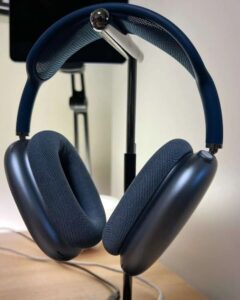
Bluetooth Hadphones vs. wired headset FAQs?
Can I use Bluetooth headphones while charging?
Yes, you can typically use Bluetooth headphones while they are charging. Most Bluetooth headphones have a pass-through feature that allows you to use them as wired headphones while connected to a charging source.
This means you can continue listening to your audio while the battery is being charged. However, it’s essential to check the specific product specifications or user manual of your headphones to ensure this feature is supported.
Are Bluetooth headphones more expensive to maintain?
In general, Bluetooth headphones may have slightly higher maintenance costs compared to wired headphones due to their reliance on batteries. Over time, the batteries in Bluetooth headphones may degrade, and you might need to replace them.
Additionally, there may be occasional firmware updates released by manufacturers to improve performance, which may require some maintenance.
However, these costs are typically minimal, and the convenience and freedom offered by Bluetooth headphones often outweigh the maintenance expenses for most users.
Do wired headphones have better sound quality than wireless ones?
In the past, wired headphones were generally considered to have better sound quality due to their direct and uninterrupted connection. However, with advancements in Bluetooth technology and the use of high-quality audio codecs like aptX and AAC, the difference in sound quality between wired and wireless headphones has become less noticeable.
Many modern Bluetooth headphones offer excellent audio performance, comparable to their wired counterparts. For critical audiophiles or professional audio work, wired headphones may still have a slight edge, but for everyday listening, wireless options can provide impressive sound quality.
What is the typical battery life of Bluetooth headphones?
The typical battery life of Bluetooth headphones varies depending on the model, brand, and usage patterns. High-quality Bluetooth headphones can offer anywhere from 10 to 30+ hours of playback on a single charge.
Some premium models equipped with energy-efficient Bluetooth versions and optimized codecs can even provide longer battery life.
It’s essential to check the manufacturer’s specifications to find out the exact battery life of the specific Bluetooth headphones you are considering.
Do all Bluetooth headphones drain the battery at the same rate?
No, the battery consumption of Bluetooth headphones can vary significantly between different models. Several factors influence battery drain, including Bluetooth version, audio codec used, volume levels, active features like noise cancellation, and usage patterns.
Newer Bluetooth versions and more energy-efficient codecs can help reduce battery consumption. Additionally, user habits, such as listening at high volumes or leaving active features constantly enabled, can impact the rate at which the battery drains. It’s crucial to be mindful of these factors to optimize battery life in Bluetooth headphones.
Is the sound quality compromised in Bluetooth headphones due to battery limitations?
The sound quality in Bluetooth headphones is generally not compromised due to battery limitations. As mentioned earlier, modern Bluetooth technology and advanced audio codecs have greatly improved the audio performance of Bluetooth headphones.
While early Bluetooth versions may have had some limitations, the latest versions, such as Bluetooth 5.0 and beyond, provide impressive sound quality with minimal impact on battery life.
High-quality Bluetooth headphones can deliver clear and detailed audio, often comparable to wired headsets. The battery limitations are more focused on the overall usage time rather than the sound quality itself.
Conclusion
In conclusion, the choice between Bluetooth and wired headphones ultimately comes down to personal preferences and specific use cases. Bluetooth headphones offer unparalleled convenience and wireless freedom, making them ideal for activities on the go.
While they may require periodic charging and have a slight trade-off in battery life compared to wired headsets, advancements in Bluetooth technology have significantly improved energy efficiency.
On the other hand, wired headphones provide a direct and reliable connection, delivering superior sound quality for audiophiles and professionals. They eliminate concerns about battery life and charging, ensuring continuous and uninterrupted audio performance.
Ultimately, whether you prioritize the convenience of wireless mobility or the audio fidelity of wired connections, both types of headphones offer excellent options to cater to diverse user needs.
By considering factors like battery life, audio quality, comfort, and budget, you can find the perfect headphones that elevate your audio experience to new heights. So, put on your chosen headphones, immerse yourself in your favorite tunes or podcasts, and enjoy the ultimate audio journey that suits your lifestyle and preferences.

